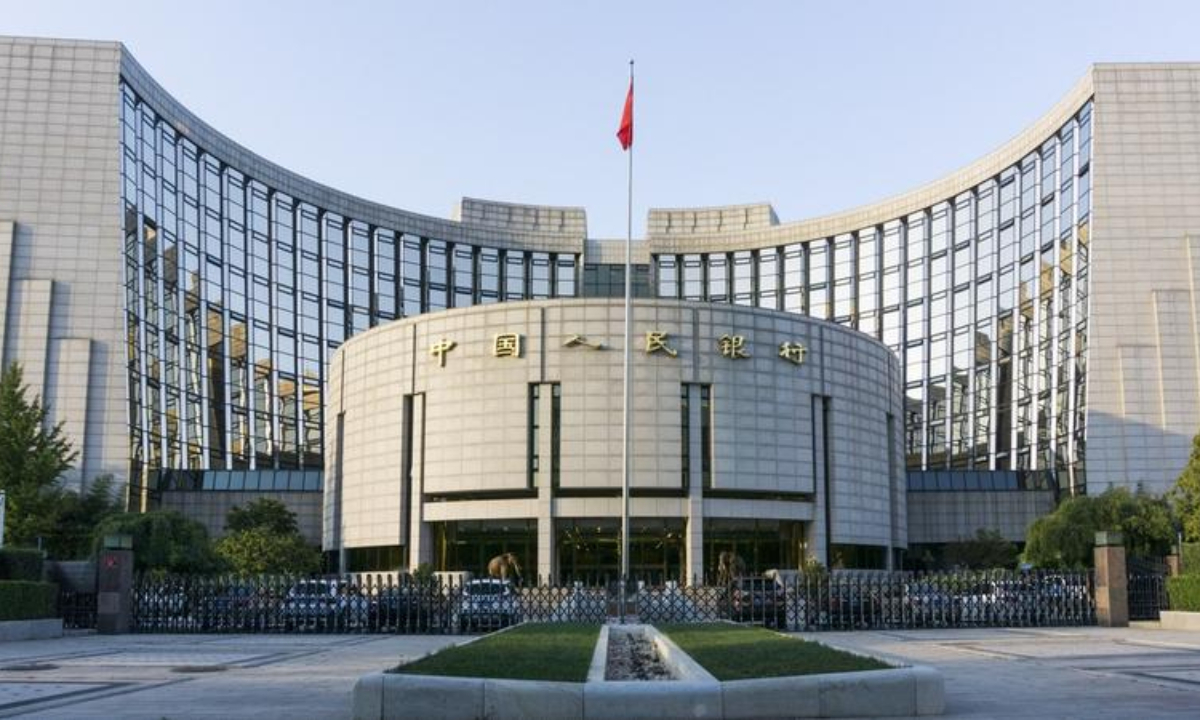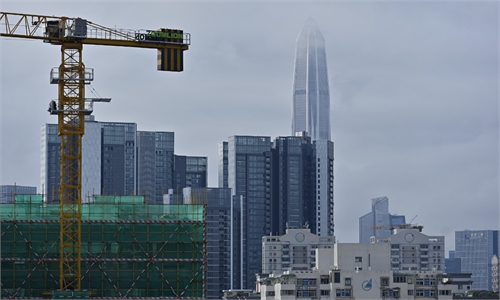Chinese central bank to boost passing of financial stability law, strengthen mechanism to prevent, defuse risks

The headquarters of the People's Bank of China in Beijing Photo: IC
Chinese officials are backing the passage of a financial stability law that will provide supervision mechanisms for all kinds of financial activities so as to protect the interests of retail and smaller investors, and those who are insured, Yi Gang, governor of the People's Bank of China (PBC), said at a press conference on Friday.
The draft law stipulates the establishment of a working mechanism to maintain financial stability, the strengthening of the mechanism to prevent and defuse financial risks, the clarification of the division of responsibilities to handle financial risks, and improved response measures to financial risks.
China is likely to roll out the law on financial stability in 2023, Liu Guoqiang, vice governor of the PBC, China's central bank, said in December, according to media reports.
It was submitted for its first reading to the 38th session of the Standing Committee of 13th National People's Congress (NPC), China's top legislature in December. In general, a draft becomes law after it is reviewed by the legislative body three times.
"The draft law provides a legal basis for the prevention and resolution of major financial risks, which will contribute to the improvement of China's financial safety and stabilize market expectations," Wang Peng, a research fellow at the Beijing Academy of Social Sciences, told the Global Times on Friday.
By unifying "scattered" rules, the law will effectively solve a variety of challenges in maintaining the country's financial stability, such as inadequacy in the cross-department working mechanism, ambiguity in the division of responsibilities among relevant government agencies, and insufficient risk disposal measures.
Amid downward economic pressure in recent years, some risks have been identified across the country's financial system, especially businesses related to the internet and real estate sectors, which are typical of cross-industry and cross-region transaction models and are harder to identify, according to experts.
Pan Gongsheng, deputy governor of the PBC, said during the press conference that since the second half of 2021, some real estate enterprises represented by Evergrande have been suffering from serious "hypertension" due to long-term "high leverage, high debt and high turnover" operations, with their balance sheets in a high risk state.
Combined with weakening medium and long-term demand in the property market, as well as the impact of the ongoing three-year epidemic on employment and income expectations, the combination of multiple factors has amplified the spillover of risks in the real estate market.
According to Pan, the central government pays great attention to the healthy development of the real estate market. Guided by the principle that "housing is for living in, not for speculation," the country has fully implemented the long-term property mechanism of stabilizing land prices, house prices and expectations, and promotes the virtuous cycle and healthy development of the real estate industry with city-specific policies.
Experts noted that the country is not revitalizing the real estate market as a short-term stimulus to China's economy, but pursuing its long-term stable and healthy development.
In response to the adjustments in the real estate market, the PBC issued 16 policy measures at the end of last year to support its stable and healthy development, working with relevant departments to promote the stable operation of the sector from both the supply and demand sides.
At present, the momentum of rapid expansion of the sector, excessive price increases and bubble in the real estate market has been curbed, Pan said.
The risks and problems encountered by the real estate market are largely related to the "hypertension" of some of property developers. It is expected that in the follow-up financial policies, the government will address the "hypertension" problem as a priority, especially improving the balance sheet of housing developers, Yan Yuejin, research director at Shanghai-based E-house China R&D Institute, told the Global Times on Friday.
The country's overall financial risk has been balanced out on the back of continued efforts by regulators to defuse financial risks, according to Yi. All of the country's top four banks are now considered global banks, with their financial strength topping the world. In addition, most of the country's joint-stock commercial and small- and medium-sized banks reported stable operations, while a small group of small- and medium-sized financial institutions have made important progress in reforms to dissolve risks, Yi said.
"The central bank will strengthen the system that ensures financial stability and guard the bottom line of no systemic financial risks," Yi said.

